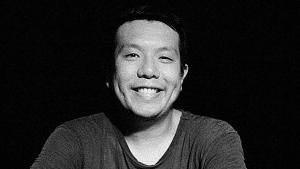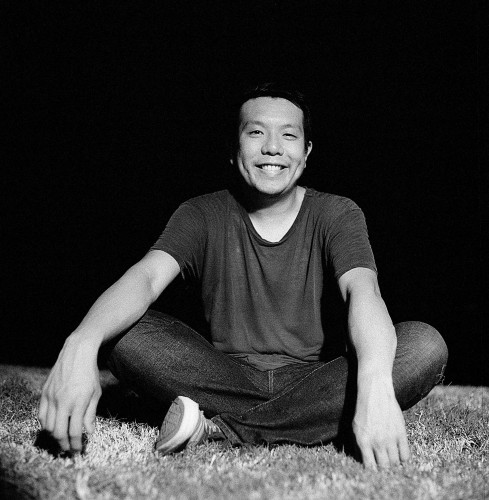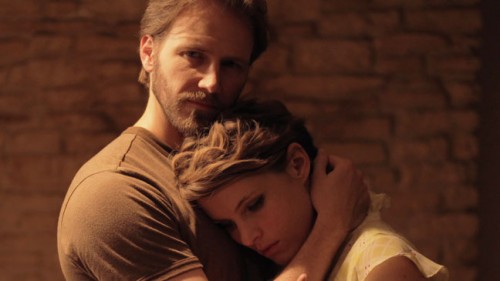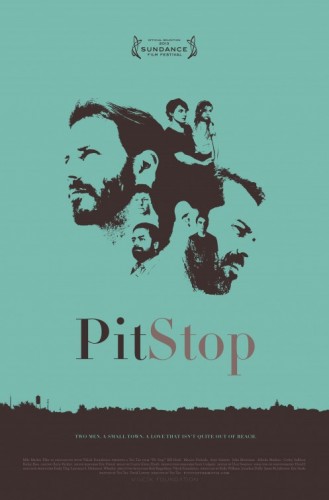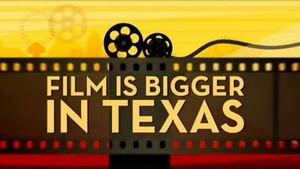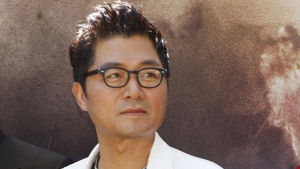Gabe (Bill Heck) struggles with his identity as a gay man living in a small, rural Texas town, finding comfort in his relationship with ex-wife Shannon (Amy Seimetz) after his recent breakup. Ernesto (Marcus DeAnda) is also plagued with the demons of a failing relationship, as he is simultaneously forced to deal with another past lovers impending death. Pit Stop follows the lives of these two men as they unknowingly drift toward one another, demonstrating the way life often has a funny way of pointing us in the right direction, even in the moments we feel most lost.
Go, See, Talk chatted with Pit Stop writer/director Yen Tan about his writing process, collaboration, and filming in Texas.
YT: I started writing Gabe’s storyline first, but I always knew I wanted another one to go along in tangent, so I thought about the possibility of someone else in the same town who is different than Gabe, but is going through his own emotional journey. Hence, Ernesto is born. I did know very early on that the third act is all about their meeting, and by then, the audience should have a very good understanding of who these two people are, and be rooting for them to find happiness.
All the supporting characters were easier to conceive once I figured out this basic structure. It wasn’t very conscious in the beginning, but in hindsight, I never really thought about approaching the supporting characters as secondary elements of the story. It became clearer and clearer that everyone had something very substantial to add to the film’s themes…Even the dog and the cat.
YT: The Canadian playwright Adam Bock once said: “In being specific in my work, that’s how universality happens.Everybody is lonely, everybody is afraid. As artists, as we get more specific, the universe appears.”
I believe in that process, too, and it’s especially true in this case. I may be gay but I have never lived in a small town in America, nor have I been married, or have a kid. I can’t claim to understand completely what it’s like to be the spouse of someone who’s come out, or what I’d do if I found out an old flame was in a coma.
All I can do is to figure out the common emotions that bridge all of our different experiences, and understand that we, as human beings, ultimately seek love and connection. Creating identifiable scenarios for the audience is a lot less challenging once I recognize that.
YT: I’ve known David since I first began to dabble with filmmaking, which is more than 10 years ago. We’d share our scripts with each other, and so he was very familiar with how Pit Stop evolved over time. More importantly, he understood the film I wanted to make.
About a year before we went into production, I felt like I had done all I could to making the script better, and since I’m ESL I was always self-conscious about the dialogue. That was the first thing I asked him to assist me with, just to make everything sound more naturally Southern. But in the process, we also rewrote some of the scenes, and came up with a handful of news ones.
YT: Your thoughts and ideas matter as much as your writing partner’s thoughts and ideas. This is especially true if we both want to make the same kind of film. I actually prefer the collaboration because I’m always second guessing myself, but if I can bounce it off somebody else I trust, and he/she thinks it’s good, I feel more confident about putting it on paper.
YT: It’s definitely a lot more economical, and the support you get from the community here is amazing. Filmmakers here thrive on helping each other out. It’s a refreshing way of going about it, since the rest of the business is usually very cutthroat.
